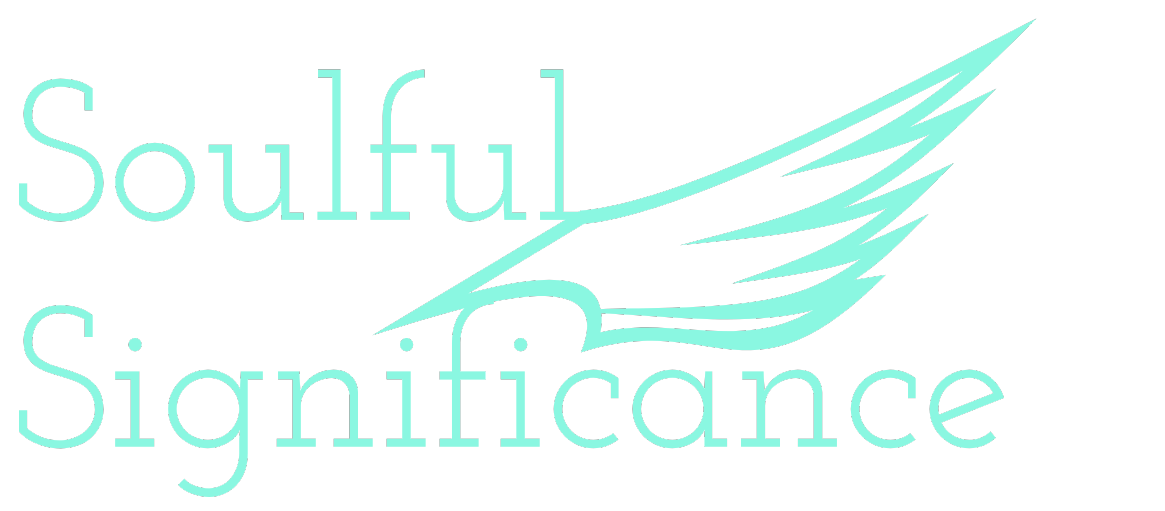Spiritual Meanings of Murder: 10 Hidden Messages
When we consider the spiritual meanings of murder, we find ourselves grappling with complex themes that challenge our understanding of life and interconnectedness. Each violent act reflects deeper karmic lessons and unresolved emotions, pushing us to confront our inner shadows. As we explore these hidden messages, we might uncover transformative insights that can guide us towards healing and personal growth. What if these tragedies serve not just as endings, but as beginnings for both the victims and the perpetrators? Let's unpack these layers together and see where they lead us.
Key Takeaways
- Murder's spiritual implications involve deep karmic lessons, emphasizing the need for reflection on one's actions and their consequences.
- The tragedy of murder can catalyze transformation, prompting individuals to confront unresolved emotions and seek personal growth through grief.
- Anger surrounding acts of murder can serve as a catalyst for healing, urging individuals to acknowledge their feelings and advocate for change.
- Embracing the shadows of trauma related to murder can lead to profound self-discovery and reclaiming personal power, fostering emotional resilience.
- Recognizing the interconnectedness of humanity highlights the collective impact of murder, inspiring empathy and communal healing in response to violence.
Karmic Lessons and Consequences
Karma often feels like an invisible thread connecting our actions to their consequences, and when we confront the spiritual implications of murder, we must consider the weight of those lessons. It's hard to fathom the depth of karmic retribution tied to such a grave act. Each decision we make sends ripples through our lives and the lives of others, creating a cycle that demands reflection.
As we navigate this complex terrain, we can find ourselves grappling with the idea of spiritual awakening. This awakening invites us to look inward, to examine our motivations, and to recognize the profound impact of our choices. It's not just about punishment; it's about understanding and growth.
In acknowledging the gravity of our actions, we collectively uncover the potential for healing and transformation. In moments of darkness, we must remember that we're not alone. Our shared experiences can guide us toward awareness and compassion.
Transformation Through Tragedy
While we often struggle to make sense of the tragedy that surrounds acts of violence, it's essential to recognize how these dark moments can serve as catalysts for profound transformation. In facing the pain of loss, we may find ourselves grappling with feelings we never expected to encounter.
Yet, it's through this transformative grief that we can experience significant inner growth. As we navigate our emotions, we start to unravel the layers of our experience, discovering resilience we didn't know we had.
This journey isn't easy; it demands vulnerability and reflection. Together, we can share our stories, finding solace in the understanding that we're not alone in our suffering. Each heart-wrenching moment can lead us to greater awareness, urging us to cherish life and foster deeper connections with others.
Through these shared experiences, we can cultivate compassion within ourselves and toward others who've faced similar tragedies. Ultimately, it's in the aftermath of sorrow that we can emerge stronger, more empathetic, and more attuned to the beauty of life.
Let's embrace this journey toward healing, honoring those we've lost by choosing transformation over despair.
The Energy of Anger
Anger's energy can often feel like a tempest within us, stirring up emotions we might prefer to ignore. We've all experienced those moments when anger surges, leaving us feeling overwhelmed and disconnected.
It's essential to recognize that this energy isn't inherently negative; it can serve as a powerful catalyst for emotional release and transformation. When we embrace our anger, rather than suppressing it, we open the door to understanding ourselves more deeply.
In our journey of anger management, we learn that acknowledging our feelings is the first step toward healing. We can channel this energy constructively, using it to set boundaries or advocate for ourselves and others.
By sharing our struggles and insights, we foster a sense of belonging and connection within our communities.
Let's remember, we're not alone in feeling this way. Anger can unite us in our shared experiences, encouraging us to transform pain into purpose.
As we navigate these turbulent waters together, let's commit to exploring our anger with compassion and curiosity, using it as a tool for growth rather than a weapon of destruction. Together, we can harness this energy for positive change.
Shadows of the Soul
Many of us carry shadows within our souls, remnants of past experiences that shape our thoughts and actions. These shadows often represent unresolved emotions, fears, and traumas that can hinder our personal growth.
When we ignore them, they tend to manifest in destructive ways, sometimes even contributing to darker impulses within us. We must recognize the importance of shadow integration, a process of acknowledging and embracing these hidden parts of ourselves.
By bringing our shadows into the light, we not only reclaim our power but also foster a deeper understanding of who we are. This journey isn't easy; it requires vulnerability and bravery. Yet, it's essential for our healing.
Soul retrieval is another crucial aspect of this process. By reconnecting with the fragmented parts of our souls, we nurture wholeness and balance. We can learn to forgive ourselves for past mistakes and release the burdens that weigh us down.
As we set out on this journey together, let's remember that we aren't alone. Our shadows, while intimidating, can lead us to profound insights and a deeper sense of belonging within ourselves and each other.
Embracing our shadows can ultimately illuminate our path toward healing.
Rebirth and Renewal
As we embrace our shadows and commence on the journey of healing, we open the door to rebirth and renewal. This transformative process invites us to reflect on our life cycles, revealing moments when we need to shed old skins to grow anew. Each experience, no matter how painful, serves a purpose in our spiritual awakening.
Together, we learn that rebirth isn't just about moving on; it's about understanding the lessons woven into our struggles. When we face the darker aspects of ourselves, we can emerge stronger, more compassionate, and connected to our true essence.
We recognize that life is an intricate tapestry of beginnings and endings, where every challenge becomes an opportunity for growth. As we navigate through these cycles, we cultivate a deeper sense of belonging—not only to ourselves but to each other.
We find solace in knowing that we're not alone in this journey; our shared experiences bind us in a collective quest for renewal. Let's honor the old while embracing the promise of new beginnings, allowing our spirits to soar as we step into the light of transformation together.
Collective Consciousness Impact
Collectively, we share a profound connection that transcends individual experiences, shaping our perceptions and actions in ways we often overlook. When we witness acts of violence, like murder, it resonates deeply within our shared consciousness.
We can't ignore the ripple effects—each tragedy carries a weight that influences not just the victims but all of us, urging us to reflect on our social responsibility.
These moments challenge us to engage in collective healing. They remind us that our responses matter; we've the power to foster understanding and compassion in a world that often feels fragmented.
By acknowledging our interconnectedness, we can begin to dismantle the barriers that separate us from one another.
In this journey of healing, we must confront the discomfort that arises from violence and embrace our role in creating a more harmonious existence.
Let's focus on empathy and support, forging bonds that uplift rather than tear down. Together, we can transform pain into purpose, reminding ourselves that every act of kindness contributes to the greater good.
In doing so, we not only honor those affected but also nurture our collective spirit, fostering a sense of belonging that we all crave.
The Illusion of Separation
The deep connections we share can often be overshadowed by the illusion of separation that permeates our lives. We find ourselves caught in a web of illusionary boundaries, believing we're isolated from one another.
Yet, this perception blinds us to the profound truth of our interconnected existence. When we recognize that every action we take reverberates through the lives of others, we begin to understand the weight our choices carry.
In moments of conflict or pain, it's easy to forget that we're all part of a larger tapestry. We might think that our struggles are ours alone, but they resonate with the collective human experience.
This shared journey reminds us that we aren't as separate as we might think.
Healing Through Forgiveness
Forgiveness can be a powerful catalyst for healing, allowing us to release the burdens of resentment and pain. As we initiate our forgiveness journey together, we may find that the act of forgiving not only liberates us but also fosters deeper connections with ourselves and others.
It's crucial to recognize that forgiveness isn't about condoning the hurtful actions of others; rather, it's about reclaiming our peace of mind.
Here are three key aspects of healing through forgiveness:
- Emotional Release: By letting go of grudges, we create space for love and compassion in our hearts.
- Personal Empowerment: Forgiving empowers us to take control of our emotional well-being, rather than allowing past hurts to define us.
- Strengthened Relationships: Through forgiveness, we can rebuild trust and connection, opening pathways to healthier interactions.
As we navigate this profound journey together, let's remind ourselves that forgiveness is an ongoing process, one that requires patience and understanding.
Each step we take brings us closer to emotional release and healing, creating a sense of belonging that enriches our lives.
Awakening to Higher Truths
Awakening to higher truths often feels like peeling back layers of our own consciousness, revealing insights that have long been buried beneath the noise of everyday life. This journey of spiritual awakening invites us to explore the depths of our experiences, helping us understand the often painful lessons woven into our existence.
As we navigate this path together, we begin to recognize that every challenge, including the darkest moments, serves a purpose in our growth. Higher consciousness opens doors to profound realizations, urging us to embrace compassion for ourselves and others. We start to see how interconnected we truly are, and the weight of past grievances begins to lift.
In our shared quest for understanding, we also discover that awakening isn't just a solitary experience; it's a collective one. By sharing our truths and vulnerabilities, we create spaces where others can also feel seen and heard.
We realize that our individual journeys contribute to a greater tapestry of human experience, reminding us that we're never alone. Together, let's embrace these revelations as stepping stones toward deeper wisdom and unity.
Embracing the Cycle of Life
As we embrace the deeper truths of our existence, we can't help but acknowledge the intricate cycle of life that surrounds us. This cycle is essential for our spiritual growth, reminding us that every ending paves the way for new beginnings. By reflecting on the life cycles we encounter, we can find meaning even in the darkest moments.
To truly embrace this cycle, we can focus on three key aspects:
- Acceptance: Recognizing that change is inevitable allows us to let go of resistance and welcome transformation.
- Connection: Understanding our interdependence fosters a sense of belonging and compassion for ourselves and others.
- Reflection: Taking time to contemplate our experiences deepens our insights, helping us navigate the complexities of life.
As we journey together, we learn that life's challenges are stepping stones toward greater wisdom. Embracing the cycle of life means honoring every phase, understanding that even in grief, there's a seed of renewal.
Frequently Asked Questions
How Does Spirituality View the Act of Murder?
When we explore spirituality's view on murder, we uncover profound moral dilemmas that challenge our sacred values. It prompts us to reflect deeply on life, connection, and the impact of our choices on others.
Can Murder Have a Positive Spiritual Outcome?
We believe that even in the darkest moments, murder can lead to redemptive justice and transformative healing. Through shared grief and understanding, we can foster connection and growth, creating a community that seeks compassion and hope.
What Role Does Intention Play in Spiritual Interpretations of Murder?
When we explore intention's significance, we realize it shapes our spiritual accountability. Our motives can transform actions, leading to deeper understanding and growth, reminding us that every choice resonates within our shared human experience.
How Can We Find Meaning in Violent Events?
We can find meaning in violent events by acknowledging our collective trauma and embracing healing journeys together. Through shared stories and support, we transform pain into understanding, fostering connection and resilience within our community.
Are There Spiritual Practices to Cope With Murder's Impact?
When coping with the impact of such tragic events, we can explore healing rituals and mindfulness techniques together. These practices help us process grief, foster connection, and create a space for collective healing and understanding.

I’m Eliza Trinity, a spiritual guide and writer at SoulfulSignificance.com, where my mission is to illuminate the path of spiritual fulfillment through Christ’s teachings. With a Theology degree and a counseling background, I blend biblical wisdom with real-world insight to support those on their journey to discovering their soul’s significance.







